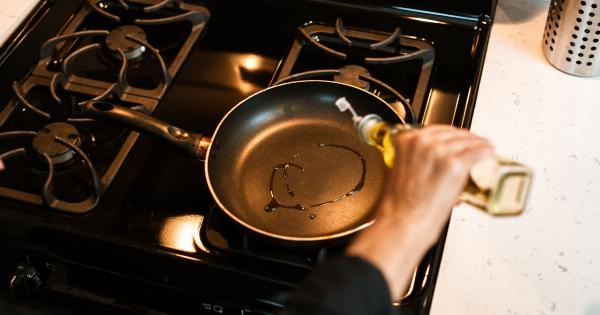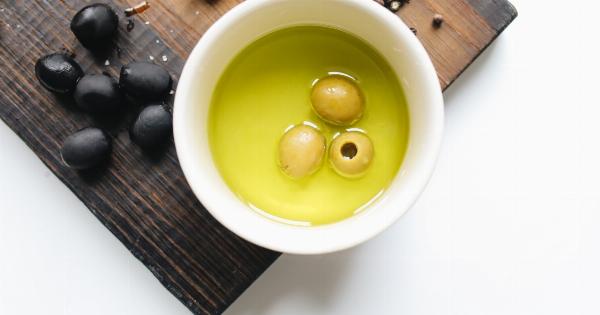When it comes to olive oil, there are countless myths and misconceptions that have been passed down through generations. From its use in cooking to its health benefits, many people believe things about olive oil that simply aren’t true.
In this article, we will debunk some of the most common olive oil myths and provide you with the facts.
Myth 1: Olive Oil Shouldn’t Be Used for Cooking
One of the biggest misconceptions about olive oil is that it shouldn’t be used for cooking. Some people believe that heating olive oil can turn it into a harmful substance. However, this is far from the truth.
While it’s true that heating any type of oil can cause it to break down, extra virgin olive oil has a relatively high smoking point, making it safe for most cooking methods, including frying and sautéing.
Myth 2: All Olive Oils Are the Same
Another common myth is that all olive oils are the same. This couldn’t be further from the truth. There are several different types of olive oil, each with its own distinct flavor and characteristics.
Extra virgin olive oil is the highest quality and most flavorful, while refined olive oil has a milder taste. It’s important to choose the right type of olive oil for your intended use, whether it’s for salad dressings or cooking.
Myth 3: Olive Oil Turns Rancid Easily
Many people believe that olive oil easily turns rancid, especially if stored improperly.
While it’s true that olive oil has a shorter shelf life compared to other oils, when stored correctly (in a cool, dark place), it can maintain its quality for a long time. Extra virgin olive oil, in particular, contains natural antioxidants that help preserve its freshness and prevent it from turning rancid quickly.
Myth 4: Olive Oil Can’t be Used for Deep Frying
Contrary to popular belief, olive oil can be successfully used for deep frying. It has a high smoking point, which means it can withstand the high temperatures needed for deep frying without breaking down.
However, it’s important to note that using extra virgin olive oil for deep frying may not be the most cost-effective choice due to its premium quality and higher price. Refined olive oil or other high-heat oils may be a more suitable option for this purpose.
Myth 5: Olive Oil Causes Weight Gain
Some people believe that consuming olive oil can lead to weight gain due to its high fat content. While it’s true that olive oil is calorie-dense, it also contains monounsaturated fats, which are considered healthy fats.
In moderation, olive oil can be a part of a balanced diet and does not directly cause weight gain. As with any oil or fat, it’s important to consume it in moderation as part of an overall healthy eating plan.
Myth 6: Olive Oil Should be Stored in the Refrigerator
Another common myth is that olive oil should be stored in the refrigerator to maintain its freshness. However, this is not necessary and can actually do more harm than good.
Storing olive oil in the refrigerator can cause it to solidify and develop condensation, potentially affecting its flavor and quality. It is best to store olive oil in a cool, dark place, away from direct sunlight and heat sources.
Myth 7: Olive Oil Loses its Health Benefits When Heated
Some people believe that heating olive oil diminishes its health benefits. While the heat can slightly alter the chemical composition of olive oil, it does not eliminate its health-promoting properties.
The monounsaturated fats and antioxidants in olive oil remain intact even when heated. However, it’s important not to overheat olive oil or reuse it excessively, as this can lead to the formation of harmful compounds.
Myth 8: Olive Oil Is Only Good for Salad Dressings
While olive oil is indeed an excellent choice for salad dressings, it can be used for much more than that. Its rich flavor and versatility make it a great ingredient for marinades, sautés, roasts, and even desserts.
Olive oil can add depth and complexity to a wide range of dishes, making it a staple ingredient in many cuisines around the world.
Myth 9: Olive Oil Has No Side Effects
Although olive oil is generally safe for consumption and considered a healthy addition to any diet, it is not completely without potential side effects.
Some people may experience digestive issues, such as diarrhea or indigestion, if they consume large amounts of olive oil. Additionally, individuals with existing allergies to olives or specific types of olive oil should exercise caution and consult their healthcare provider before incorporating it into their diet.
Myth 10: All Olive Oils Are Created Equally Healthy
Not all olive oils are created equally healthy. Extra virgin olive oil is the least processed and contains the highest levels of antioxidants and beneficial compounds.
On the other hand, refined olive oils undergo more processing, which can result in a loss of some nutrients and health benefits. When selecting olive oil, opt for extra virgin olive oil whenever possible to reap the maximum health benefits.
























